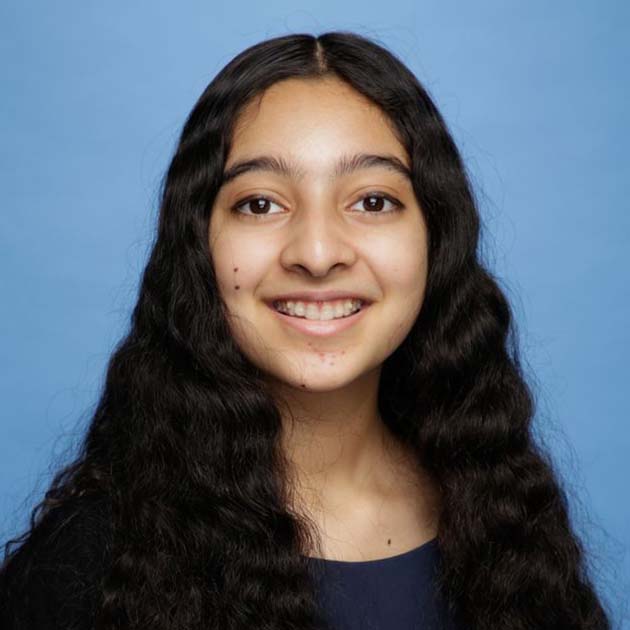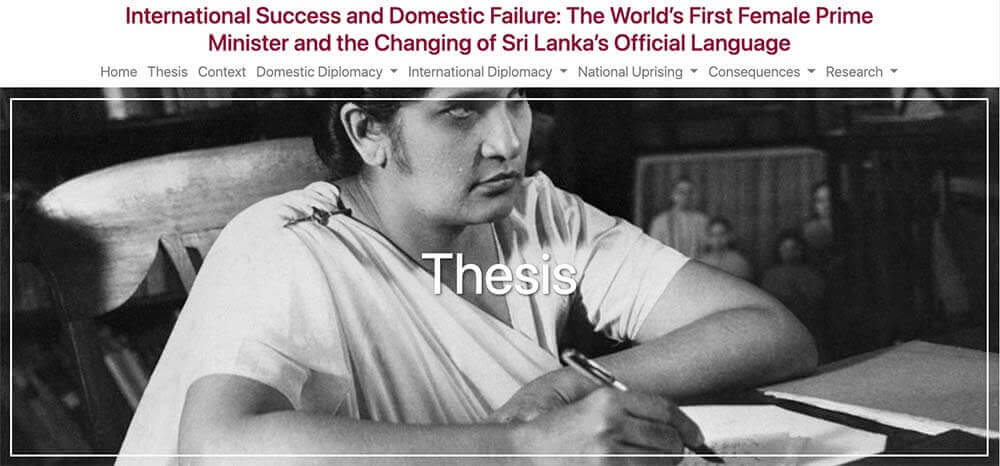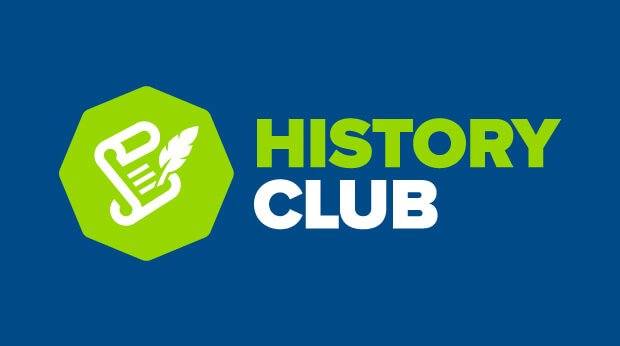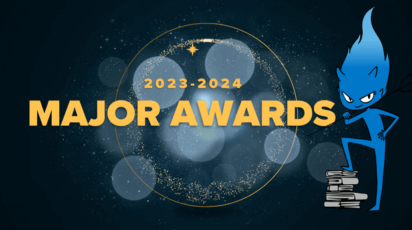News
Two Students Earn Honors in NYC History Contest

Two members of Poly’s History Club earned honors in the NYC regional portion of the 2022 National History Day competition. Marisa Triola ’24 earned first place for her website about Sirimavo Bandaranaike, the first female prime minister of not only Sri Lanka, but also the first in the world, and June Dorsch ’23 earned second place for her paper, “A New Diplomacy: Indigenous Women and the Fight to End Forced Sterilization.” They’re headed to the state competition on April 8.
Students from all five boroughs—220 from 30 schools—entered the NYC competition. Projects were submitted in five categories: exhibits, performances, websites, papers, and documentaries with the theme of Debate & Diplomacy in History: Successes, Failures, Consequences.
Focusing on Female Prime Minister of Sri Lanka Sirimavo Bandaranaike

Marisa Triola ’24 created a website about Sirimavo Bandaranaike, who became the prime minister of Sri Lanka in 1960, and the first female prime minister in the world. Triola said she was drawn to this topic because she is half Sri Lankan. “I find that the history of Sri Lanka is often untold,” she said, “and I wanted to tell this story.”
“I found that Bandaranaike’s story was one that fits quite well into this year’s theme,” Triola said. “I focused on how different aspects of Bandaranaike’s identity influenced how she acted as prime minister, and how others saw her. She was respected for being a woman, which I found to be incredibly significant.”
“Despite setting this positive precedent,” Triola explained, “Bandaranaike also escalated other conflicts between ethnic groups in Sri Lanka, eventually leading to a civil war. During British rule, the British colonizers in Sri Lanka had favored the Tamils, a minority ethnic group. They built schools in Tamil areas, causing Tamils to have high English literacy rates, speaking English in addition to the Tamil language. After independence, the Sinhalese, Sri Lanka’s majority ethnic group, wanted to reclaim their culture. Many Sinhalese politicians, led by Bandaranaike, wanted to change Sri Lanka’s official language to Sinhalese. This, in addition to many other acts, which pushed the formerly dominant Tamils aside, caused the Tamils to protest. These protests were met by riots by Sinhalese mobs, which were, in turn, met with more violence. To counter these mobs, a group of Tamils created the Liberation Tigers of Tamil Eelam, a terrorist organization that eventually fought Sri Lanka’s civil war against the Sri Lankan government. The Liberation Tigers’ aim was to secede and create their own State, which they would call Eelam. I found that this fits into the theme’s Debate portion because of the debate in Sri Lanka over what should be done about the official language and the conflicts between ethnic groups. Additionally, it fits into the Diplomacy portion because of Bandaranaike’s failures in being diplomatic with the Tamils. With their language erased from the country, they felt they had no voice other than violence.”
“I learned a lot from creating this project,” Triola said, “and I would like to thank History Club’s advisors, Dr. Dillon and Ms. Moslander, and my classmates June Dorsch and William Ling Regan for always providing me with guidance, feedback, and encouragement.”
Researching the Forced Sterilization of Indigenous Women in Recent History

“I learned that 25-42% of Indigenous women of childbearing age were forcibly sterilized in the 1970s,” explained June Dorsch ’23 in describing the focus of her paper. “When I asked my parents and grandparents, who were alive during these events, they did not know about it. The fact that a genocide from recent history was unknown to people in my life drove me to research forced sterilization.”
Dorsch continued, “I had two focuses in my paper: one, I wanted to explore how Indigenous people used activism to end a genocide, and two, I wanted to redefine how we think about diplomacy in history. Despite being sovereign, tribes were subject to the U.S. government’s paternalistic policies and did not have access to traditional diplomacy. Activism can be a form of nontraditional diplomacy as a result, since Indigenous people are still peacefully communicating with another government to create change.”
“One thing I was moved by in the research process was the stories of actual women who were sterilized,” Dorsch said. “Women as young as 16 were sterilized without their knowledge or consent, and the emotional pain and isolation that came with infertility were heartbreaking.”
Read June’s paper: “A New Diplomacy: Indigenous Women and the Fight to End Forced Sterilization”
In her paper, Dorsch wanted to tell the story from the Indigenous perspective. “I used a lot of primary sources from Indigenous newspapers, pamphlets, and other media,” she said. “I got the women’s stories from those newspapers, and also a television interview with some of the activists. I also used a book by foreign-policy analyst Anne-Marie Slaughter to understand diplomacy, and to support my argument about the ‘new’ diplomacy.”
Dorsch and Triola are members of Poly’s History Club. Read more about the successes of this vibrant academic club.





